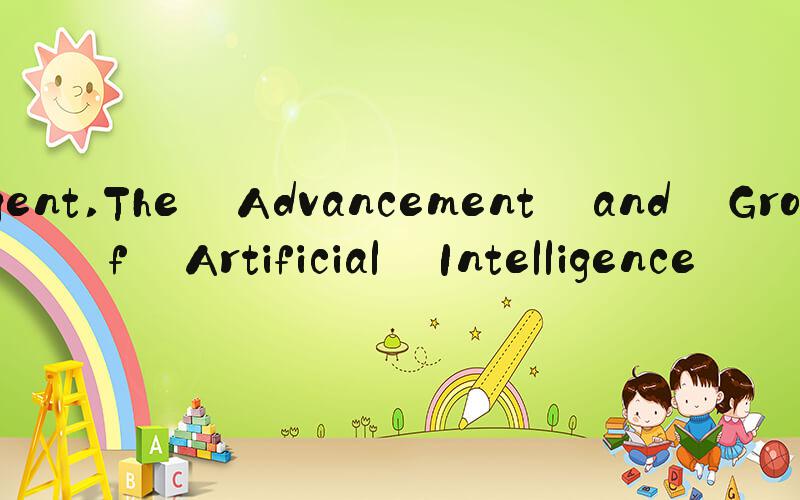
 Intelligent: The Alarming Rise of Artificial Intelligence in Society
Intelligent: The Alarming Rise of Artificial Intelligence in SocietyArtificial intelligence is rapidly becoming a disruptive force in society, transforming industries, and changing the way we live, work, and interact. Intelligent systems have been at the forefront of the technological revolution, creating a new era of machine learning, robotics, and automation that promises to change the world in unprecedented ways. However, with the rise of intelligent systems come new challenges and concerns related to ethics, privacy, and security. This article explores the alarming rise of artificial intelligence in society and the implications it has for our future.
The Advancement and Growth of Artificial IntelligenceArtificial intelligence is growing at an unprecedented rate, fueled by powerful algorithms and massive amounts of data. From chatbots to self-driving cars, intelligent systems are transforming industries and improving efficiency and productivity. Intelligent systems enable us to make better decisions and solve complex problems with ease. Moreover, artificial intelligence is creating new jobs and opportunities, revolutionizing traditional industries, and paving the way for a more connected and efficient future.
The Challenges and Concerns of Artificial IntelligenceWith the rapid growth of artificial intelligence, comes new challenges and concerns that must be addressed. The first challenge is related to ethics. Many intelligent systems are designed to collect and analyze large amounts of data, raising concerns about individual privacy and data security. Moreover, there are concerns about the potential misuse of intelligent systems, particularly in areas such as surveillance and law enforcement.
Another major concern related to artificial intelligence is the potential impact on employment. As intelligent systems become more advanced, many jobs previously performed by humans are at risk of being automated. This is especially true in industries such as transportation and manufacturing, which are already seeing significant disruption due to the rise of intelligent systems.
The Importance of Ethics in Artificial IntelligenceAs intelligent systems continue to advance, ethics must be at the forefront of development and implementation. Ethical considerations must be built into the design of intelligent systems to ensure that they adhere to principles such as accountability, transparency, and fairness. Moreover, there must be regulations and standards in place to ensure that intelligent systems are deployed in ways that do not infringe on individual privacy or human rights.
Furthermore, stakeholders must work together to address the potential impact of artificial intelligence on employment. Governments and industry leaders must develop strategies to ensure that workers are not left behind as new jobs are created and old ones are automated. This may include investing in education and training programs to enable workers to transition to new roles that require a different set of skills.
The Future of Artificial IntelligenceThe future of artificial intelligence is both exciting and challenging. While intelligent systems promise to bring about significant benefits, they also present new risks and challenges that must be addressed. Companies and governments must work together to ensure that ethical considerations are built into the design and deployment of intelligent systems. Moreover, stakeholders must work together to develop strategies that ensure that workers are not left behind in the wake of automation.
Looking ahead, the rise of artificial intelligence is likely to continue, transforming industries and changing the way we work, live, and interact. However, it is essential that we approach this new era of intelligent systems with caution and vigilance, ensuring that we reap the benefits without compromising our fundamental values and rights. By doing so, we can embrace the future of artificial intelligence with optimism and confidence, knowing that we have taken the necessary steps to ensure a better future for all.
